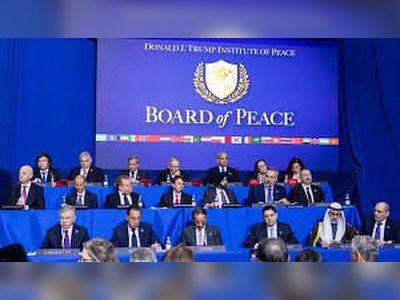
UAE issues new guidance to hawala providers and financial institutions
The Central Bank of the UAE issued fresh guidance on anti-money laundering and combatting the financing of terrorism (AML/CFT) to Registered Hawala Providers in the UAE and Licensed Financial Institutions that provide services to RHPs.
The new set of directions will help in effective implementation of the statutory AML/CFT obligations for RHPs and LFIs, the central bank said. The guidance, which also takes Financial Action Task Force standards into account, came into effect on Wednesday.
“The CBUAE will continue to keep a suitably close eye on licensed financial institutions in the country, including registered hawala providers to enhance their effectiveness in implementing AML/CFT measures to safeguard the UAE’s financial system,” Khaled Balama, governor of the CBUAE, said.
The UAE has introduced strict measures to combat money laundering and set up a dedicated agency this year to identify people responsible and those suspected of financing terrorists and organised crime. The CBUAE also regularly issues guidelines on how financial institutions can assess money-laundering risks.
Hawala providers extend an informal funds-transfer service between people using non-bank settlement methods.
The regulator permits legitimate hawala activity, and considers it an important element in its continuous efforts to boost financial inclusion and bring the unbanked segment of the population into the regulated financial system.
Hawala is regulated by the Registered Hawala Providers Regulation issued in 2019. All providers undertaking hawala activity in the UAE must hold a hawala provider certificate issued by the central bank.
“The CBUAE will continue to keep a suitably close eye on licensed financial institutions in the country, including registered hawala providers to enhance their effectiveness in implementing AML/CFT measures to safeguard the UAE’s financial system,” Khaled Balama, governor of the CBUAE, said.
The UAE has introduced strict measures to combat money laundering and set up a dedicated agency this year to identify people responsible and those suspected of financing terrorists and organised crime. The CBUAE also regularly issues guidelines on how financial institutions can assess money-laundering risks.
Hawala providers extend an informal funds-transfer service between people using non-bank settlement methods.
The regulator permits legitimate hawala activity, and considers it an important element in its continuous efforts to boost financial inclusion and bring the unbanked segment of the population into the regulated financial system.
Hawala is regulated by the Registered Hawala Providers Regulation issued in 2019. All providers undertaking hawala activity in the UAE must hold a hawala provider certificate issued by the central bank.




